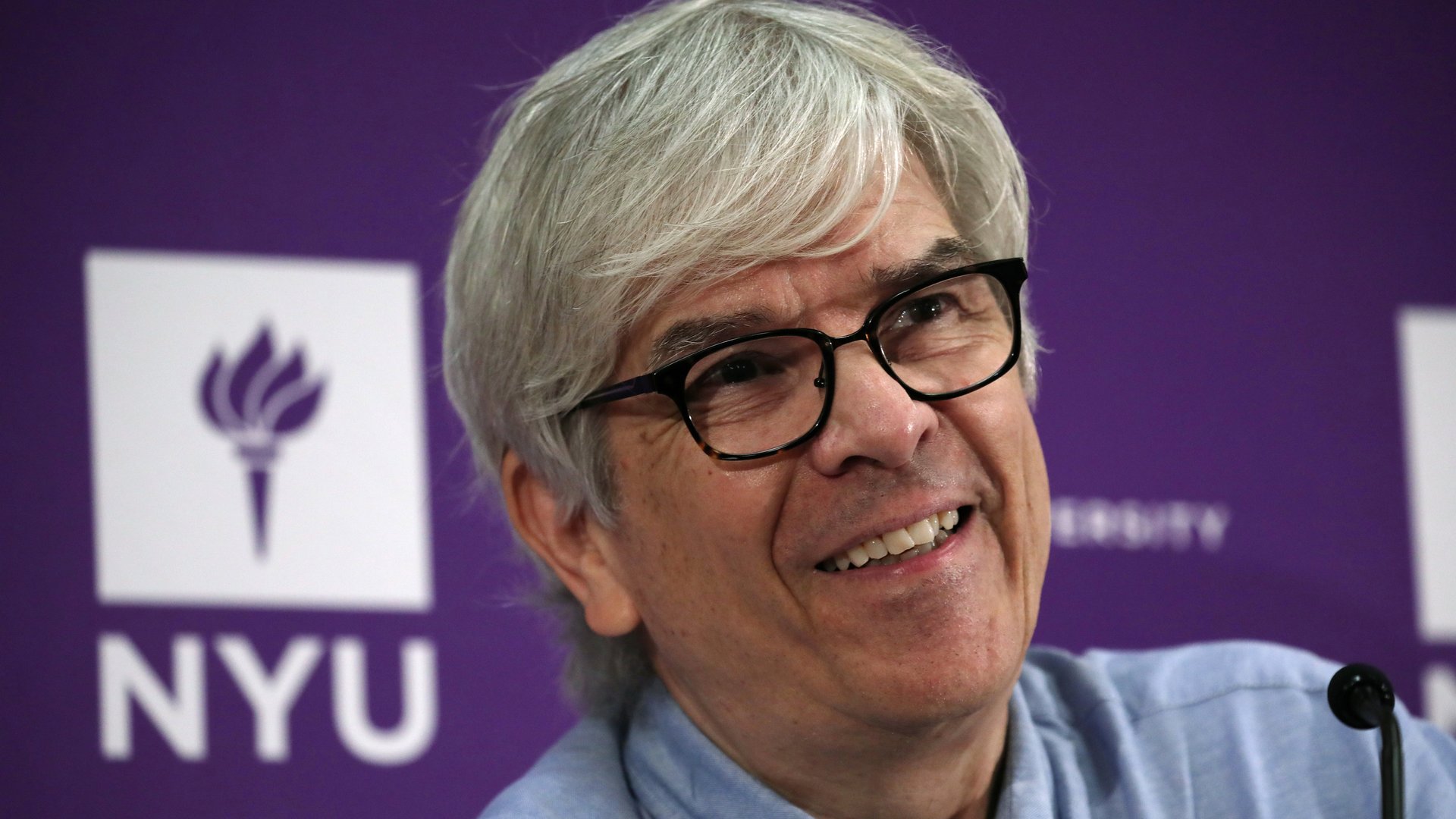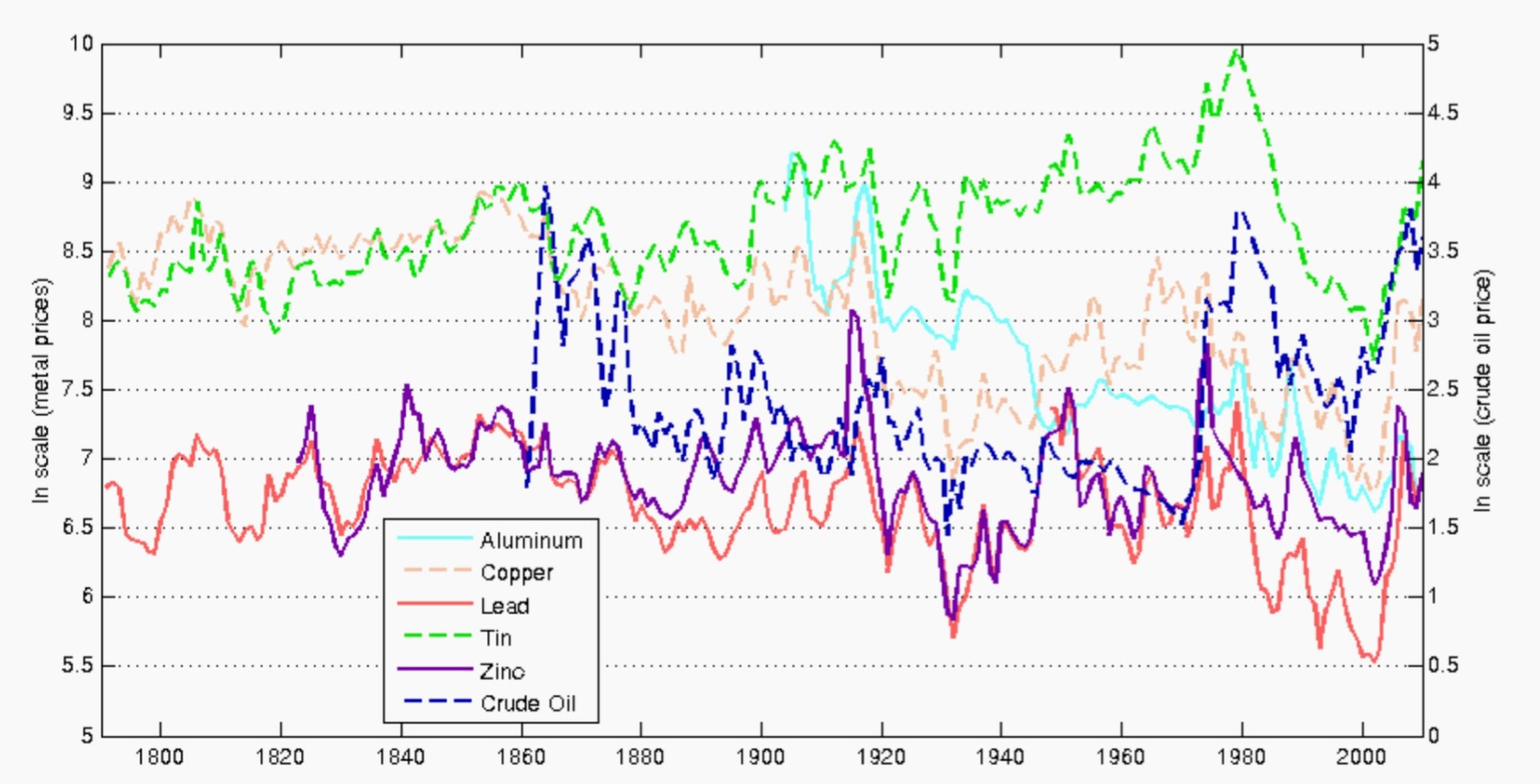Why the newest Nobel laureate is optimistic about beating climate change
Today, the Nobel Prize in economics was awarded to two economists who found ways of integrating innovation and sustainability into mainstream macroeconomic models.


Today, the Nobel Prize in economics was awarded to two economists who found ways of integrating innovation and sustainability into mainstream macroeconomic models.
William Nordhaus of Yale University is considered the father of climate-change economics. As it happens, he won the prize on the same day that the UN’s Intergovernmental Panel on Climate Change put out a report warning that we are running out time in the fight against global warming. “If you called on almost any day, there will be a story in the newspapers, science journals or economic journals about climate change and its impacts,” he said. “That’s a sign of its ubiquitous nature.”
One of the clearest messages that emerges from his work is that a global carbon tax is the most efficient way to contain climate change. But Nordhaus himself isn’t optimistic about it, given how reluctant governments are to impose a price on carbon emissions.
Paul Romer of New York University, today’s other Nobel winner, is more optimistic about fighting climate change. His work focuses on understanding how technological innovation and the spread of ideas boosts economic growth.
At a press conference after the announcement, Romer was asked about his thoughts on the climate-change report and whether it is too late to do anything. “It’s entirely possible for humans to produce less carbon,” he said. “There will be some tradeoffs, but once we begin to produce [fewer] carbon emissions we’ll be surprised that it wasn’t as hard as it was anticipated.”
Economic theory posits that, as finite resources are consumed their prices should go up. Yet, Romer points out that over the past 200 years economies have grown while the prices of most commodities—including aluminum, copper, lead, tin, zinc, and crude oil—have remained relatively flat. More productive, efficient, and innovative economies have been able to squeeze more growth out of the same inputs over time.

Both Nordhaus and Romer are distinguished academics with access to the same information about the world. Why do they appear to have such different outlooks on our ability to deal with climate change?
In 2016, Romer addressed this, in a way. “The practical insight is that there are two very different types of optimism,” he wrote. “Complacent optimism is the feeling of a child waiting for presents. Conditional optimism is the feeling of a child who is thinking about building a treehouse. ‘If I get some wood and nails and persuade some other kids to help do the work, we can end up with something really cool.'”
Romer’s work, summarized in what’s become known as endogenous growth theory, suggests that human ingenuity has allowed us to extract ever more value from a limited amount of resources. “We make progress because of things that people do,” he wrote. “We should encourage people to do a lot more of whatever it is that they are doing to generate progress.”
At the same time, however, we should find ways of discouraging people from doing things that harm the planet, such as putting out emissions from burning fossil fuels. One solution, Romer writes, is to impose a “very low” tax on emissions that will rise gradually over time. Then, he suggests:
Innovators will start investing now in ways to for people to get what they want without paying the tax. They will stop investing in ways to extract more fossil fuels that will be subject to the tax.
After all the fear and hand-wringing, once we commit to this kind of tax, progress will continue but in a slightly different and much better direction. It will still seem to be free.
Our intuition tells us that solving this problem cannot be so easy. But intuition has also been telling us for two centuries that the price of natural resources has to climb as the rate of resource extraction increases. So what are you going to believe? Your intuition or the logic and the evidence?
Romer doesn’t have patience for pessimism. “The danger with the very alarmist portraits—for which there is real basis—is that it will make people apathetic and hopeless,” he said during the Nobel Prize conference. “My sense is that optimism is part of what helps motivate people attack a hard problem. Many people think protecting the environment will be so costly and so hard that they just want to ignore the problem or they want to deny it exists.”
Winning the Nobel Prize for his work “will help everyone see that humans are capable of amazing accomplishments when we set about trying to do something,” Romer said. He added: “If we set about making the policy changes that are required here, we can absolutely make substantial progress towards protecting the environment and do it without giving up the chance to sustain growth. I hope the optimism will shift over to taking the steps that we need to take. “